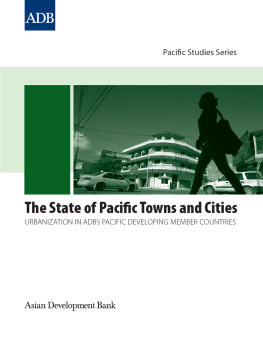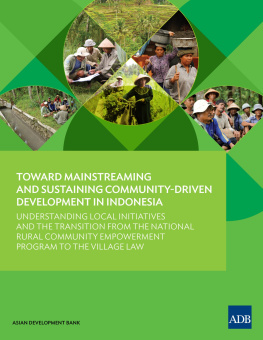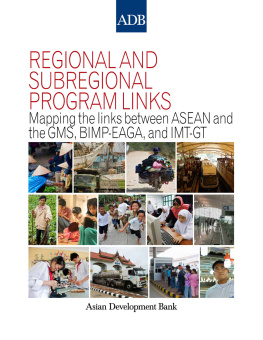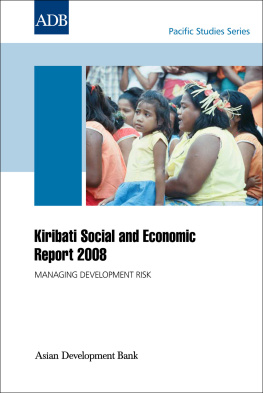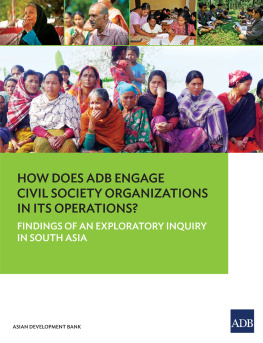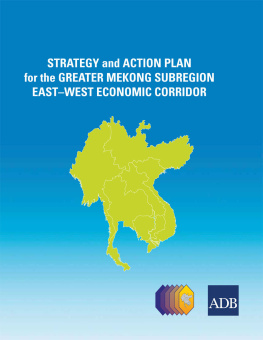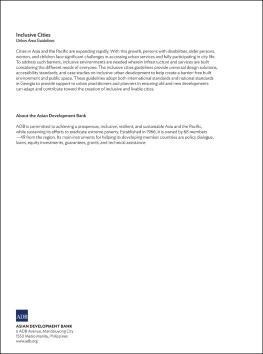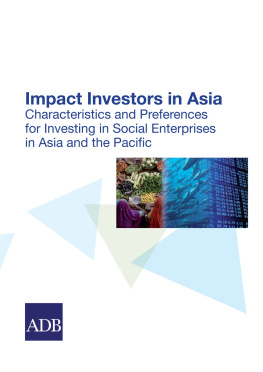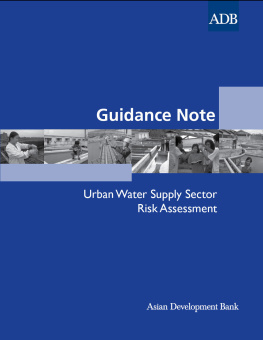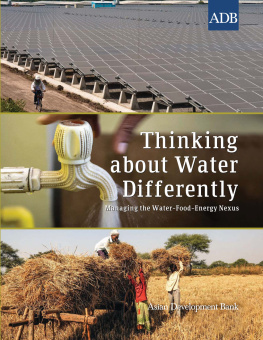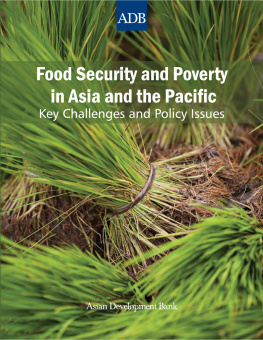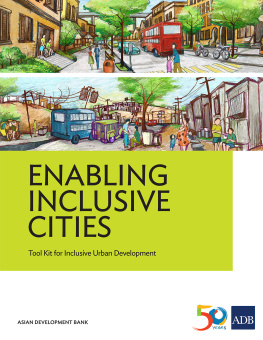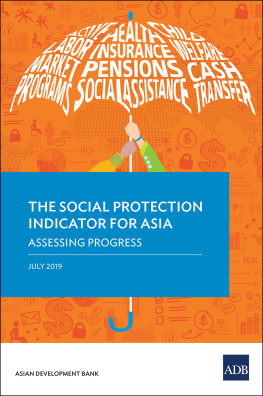Handbook on
Poverty and Social Analysis
A Working Document
Asian Development Bank
2012 Asian Development Bank
All rights reserved. Published 2012.
Printed in the Philippines.
ISBN 978-92-9092-929-1 (Print), 978-92-9092-930-7 (PDF)
Publication Stock No. TIM125196
Cataloging-In-Publication Data
Asian Development Bank.
Handbook on poverty and social analysis: A working document.
Mandaluyong City, Philippines: Asian Development Bank, 2012.
1. Poverty.2. Social analysis.I. Asian Development Bank.
The views expressed in this publication are those of the authors and do not necessarily reflect the views and policies of the Asian Development Bank (ADB) or its Board of Governors or the governments they represent.
ADB does not guarantee the accuracy of the data included in this publication and accepts no responsibility for any consequence of their use.
By making any designation of or reference to a particular territory or geographic area, or by using the term country in this document, ADB does not intend to make any judgments as to the legal or other status of any territory or area.
ADB encourages printing or copying information exclusively for personal and noncommercial use with proper acknowledgment of ADB. Users are restricted from reselling, redistributing, or creating derivative works for commercial purposes without the express, written consent of ADB.
Note:
In this publication, $ refers to US dollars.
6 ADB Avenue, Mandaluyong City
1550 Metro Manila, Philippines
Tel +63 2 632 4444
Fax +63 2 636 2444
www.adb.org
For orders, please contact:
Fax +63 2 636 2648
Contents
TABLES, FIGURES, AND BOXES |
FOREWORD |
ABBREVIATIONS |
EXECUTIVE SUMMARY |
I. | OVERVIEW OF POVERTY REDUCTION AND INCLUSIVE DEVELOPMENT IN ADB OPERATIONS |
| A. | Introduction |
| B. | Relevant ADB Policies and Strategies |
| C. | Poverty and Social Analysis in ADB Operations |
II. | POVERTY AND SOCIAL ANALYSIS IN COUNTRY PARTNERSHIP STRATEGIES |
| A. | Introduction |
| B. | Poverty and Social Analysis in the Country Partnership Strategy Process |
| C. | Poverty and Social Analysis in Regional Programming |
| D. | Poverty and Social Analysis in Country Performance Assessments |
III. | POVERTY AND SOCIAL ANALYSIS IN PROJECT CONCEPT STAGE |
| A. | Introduction |
| B. | Project Classification |
| C. | Financing Modalities |
| D. | Project Concept |
IV. | POVERTY AND SOCIAL ANALYSIS IN PROJECT DESIGN |
| A. | Overview |
| B. | Organization of Poverty and Social Analysis |
| C. | Assessing Poverty Impacts, Targeting the Poor, and Promoting Inclusion |
| D. | Other Social Dimensions and Risks |
| E. | Inclusive Design and Monitoring Framework |
| F. | Project Documentation |
V. | POVERTY AND SOCIAL DIMENSIONS IN PROJECT IMPLEMENTATION |
| A. | Introduction |
| B. | Poverty and Social Dimensions in the Project Performance Management System |
| C. | Roles of Stakeholders |
| D. | Disclosure |
APPENDIXES |
| 1. | Relevant ADB Policies, Strategies, and Procedures |
| 2. | Tools and Data Collection Methods for Poverty and Social Analysis |
| 3. | Poverty and Social Analysis in Project Concept Stage |
| 4. | Poverty and Social Analysis in Project Design |
| 5. | Labor |
| 6. | Other Risk Assessments and Mitigation Plans |
| 7. | Sample Poverty and Social Indicators |
GLOSSARY |
SELECTED REFERENCES |
Tables, Figures, and Boxes
TABLES |
| Poverty and Social Analysis in ADBs Sovereign Operations |
| Initial Poverty and Social Analysis Tools and Outputs |
| Poverty Impact Assessment Matrix |
| Social Risks and Possible Mitigation Measures |
FIGURES |
| Strategy 2020 |
| ADB Operational Cycle (Sovereign Operations) |
| Country Partnership Strategy Process Flow |
| Project Preparation |
| Targeting Classification Links to Poverty Reduction and Inclusive Development |
| Project Performance Management System |
BOXES |
| Sector Assessments Key Questions |
| Country Partnership Strategies Key Questions |
| Entry Points for Addressing Poverty and Social Issues in a Country Partnership Strategy |
| Annual Country Portfolio Review Key Questions |
| Initial Poverty and Social Analysis Key Questions |
| Risks and Vulnerabilities to be Identified at Initial Poverty and Social Analysis Preparation |
| Institutional and Capacity Analysis Key Questions |
Foreword
The Handbook on Poverty and Social Analysis: A Working Document is designed to be a valuable resource to help staff of the Asian Development Bank (ADB), government officers, consultants, project sponsors/borrowers, and other stakeholders to effectively address the poverty and social dimensions of ADBs operations. Ultimately, the handbook aims to contribute to positive development outcomes in the Asia and Pacific region that are inclusive, equitable, and sustainable.
The handbook provides an update on poverty and social analysis aligned with the inclusive growth agenda of ADBs Strategy 2020 as well as its streamlined business processes and increased emphasis on results, and changes in policies and staff guidelines related to gender, participation, social safeguards, other social risks, and public communications. It does not introduce any new policies or procedural requirements. The five sections in the handbook are organized according to ADBs operational cycle and business practices. Appendixes provide selected tools, links to other handbooks, and guidelines on social development topics.
The handbook was a product of collaboration among staff from across ADB, including inputs from a peer review team, whose support is gratefully acknowledged. This endeavor was initiated by the Poverty Reduction, Gender and Social Development Division of the Regional and Sustainable Development Department led by Sri Wening Handayani, and Eugenia McGill (staff consultant), supervised by Bart W. des and supported by Michelle Domingo-Palacpac, Princess Lubag, and Myla Sandoval. Valuable comments and suggestions were received from the peer review team comprised by staff from across ADBs regional departments, the Private Sector Operations Department, and the Regional and Sustainable Development Department including Linda Adams, Armin Bauer, Shanny Campbell, Scott Ferguson, Yukiko Ito, Sunhwa Lee, Christopher Morris, Joyce Munsayac, Bui Ngoc Quang, Jeremy Stickings, Susann Roth, Indira Simbolon, Sonomi Tanaka, Francesco Tornieri, and Wendy Walker.


